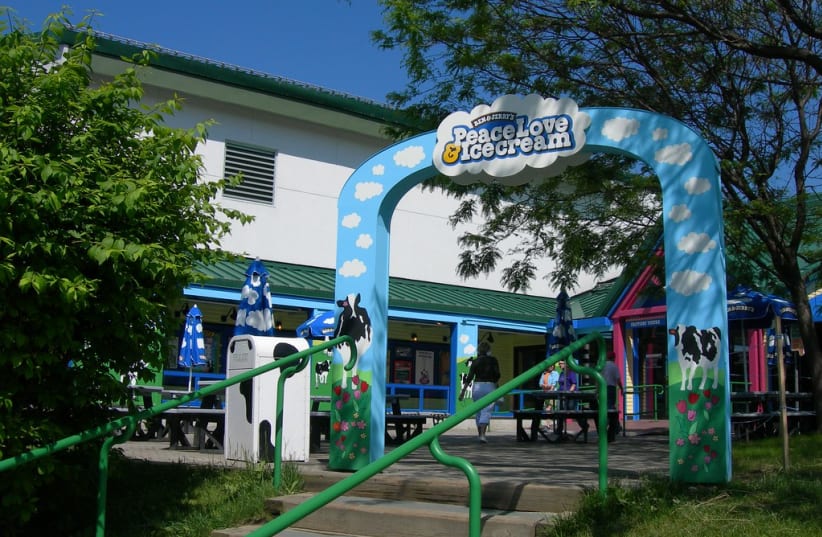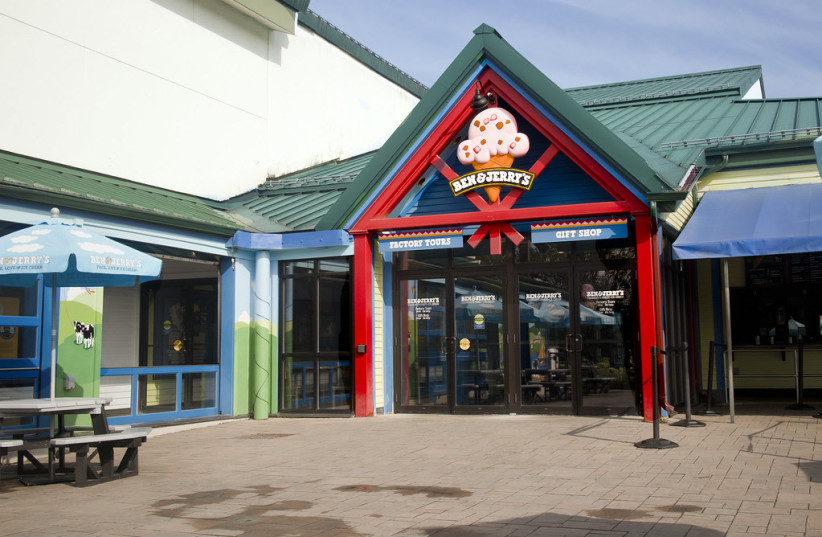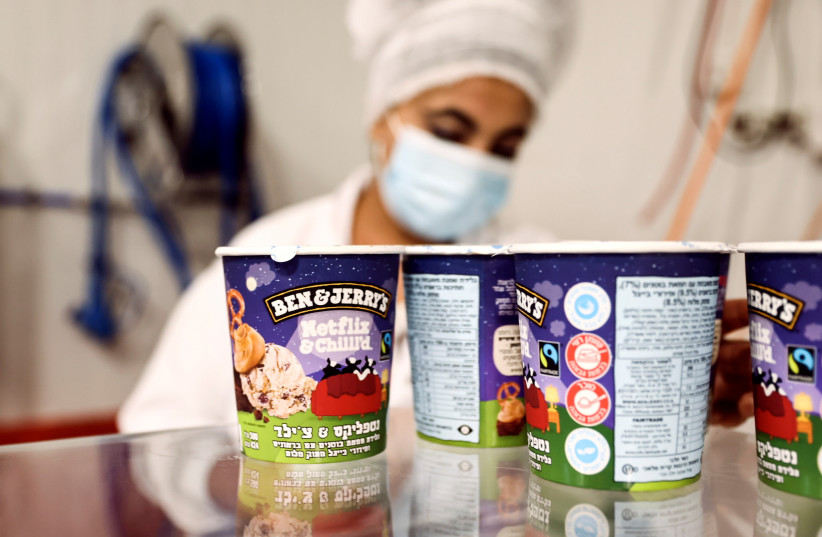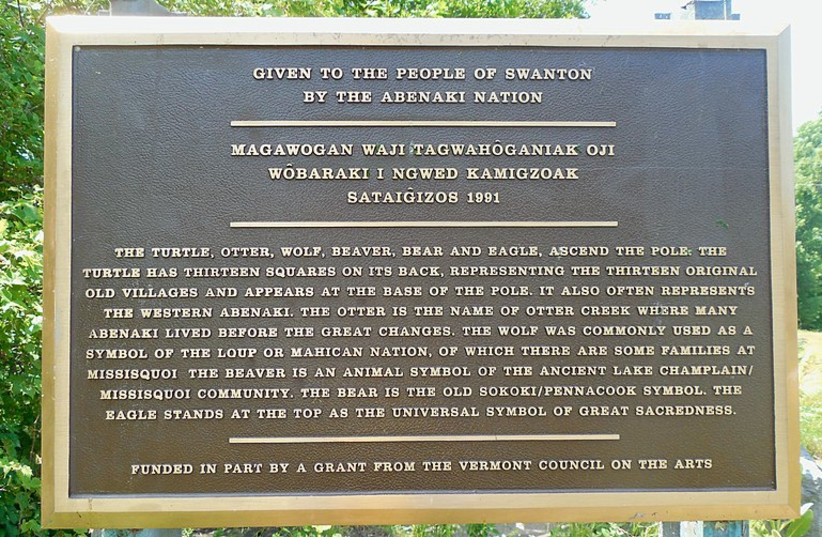In a letter sent to the chairperson of Ben & Jerry’s earlier this week, over 1,000 Israeli university students demanded that the ice cream company recognize the “illegally occupied” land where their Vermont factory sits, and evacuate it immediately.
In the letter written on behalf of “Students for Justice in America,” the students stated that they were “deeply concerned about safeguarding human rights and the oppression of indigenous peoples in North America.”
They explained that their “research and investigation have determined that the land that the Ben & Jerry’s corporation operates from in Vermont, 30 Community Drive in South Burlington, 1281 Waterbury-Stowe Road, Route 100 in Waterbury and 900 Industrial Park Road in Saint Albans, is territory that belongs to the Abenaki people.
“This land, like many other territories in Vermont, was taken from the indigenous tribes during its earliest conquest by French and British colonialists and then the American military. The Abenaki had lived on these lands continuously for thousands of years before the invasion by the foreign white traders and settlers. The European colonialists and the Americans intentionally killed off the Abenaki people through warfare and the spreading of diseases such as smallpox, typhus and influenza.
“We have concluded that your company’s occupation of the Abenaki lands is illegal and we believe it is wholly inconsistent with the stated values that Ben & Jerry’s purports to maintain,” states the letter, adding, “Ironically, in July of the last year, you announced that you would discontinue the sale of your products in Israel because you object to the Jewish state allegedly occupying Palestinian territories... Yet at the same time, you ignore your own occupation of the land that belongs to the Abenaki.”
Citing the Declaration on the Rights of Indigenous Peoples passed by the United Nations General Assembly in 2007, the letter states, “Article 26 provides that: ‘Indigenous peoples have the right to the lands, territories and resources which they have traditionally owned, occupied or otherwise used or acquired and have the right to own, use, develop and control the lands, territories and resources that they possess by reason of traditional ownership or other traditional occupation or use, as well as those which they have otherwise acquired.’”
“Accordingly,” the letter concludes, “we, the Students for Justice in America, demand that Ben & Jerry’s immediately evacuate the Vermont properties it occupies in South Burlington, Waterbury and Saint Albans and return them to the Abenaki people. Your company has no right to these stolen territories. Justice, morality and boycotts are not just slogans and antisemitic weapons for your food company to point at the Jewish community in Israel. Justice and morality must begin at home.”
"We have concluded that your company's occupation of the Abenaki lands is illegal and we believe it is wholly inconsistent with the stated values that Ben & Jerry’s purports to maintain."
Students for Justice in America
The letter to Ben and Jerry's chairperson Anuradha Mittal was supported by Shurat HaDin (Israel Law Center), a Tel Aviv-based human rights organization dedicated to safeguarding the lives of the Jewish community, seeking justice for the victims of terrorism worldwide and combating BDS initiatives.
In a statement about the initiative, Shurat HaDin president Nitsana Darshan-Leitner said, “Ben & Jerry’s blatant hypocrisy has now been revealed by these Israeli students,” adding that it is “a corporation led by a BDS extremist, which has hijacked the entire company and manipulated its ‘core values’ to fit her own anti-Israeli agenda.”
Ben and Jerry's boycott against Israel
In July of last year, the Vermont-based ice cream company announced that it would no longer allow its products to be sold to Israelis in the West Bank. The boycott, in effect, was against all of Israel. This was because of local laws against location-based discrimination that would not have allowed Avi Zinger, owner of the licensee American Quality Products Ltd, to limit his sales to one side of the Green Line.
Following Ben and Jerry’s announcement, Jewish and pro-Israel organizations took action, protesting the decision and trying to find legal ways around it. Several states that have laws meant to discourage the Boycott, Divestment and Sanctions (BDS) movement began the process of divesting or stopping to purchase products from Unilever.
In addition, the Foreign Ministry entered negotiations with Unilever, and the Louis D. Brandeis Center for Human Rights Under Law represented Zinger in a lawsuit filed in the US District Court of New Jersey.
"Justice, morality and boycotts are not just slogans and antisemitic weapons for your food company to point at the Jewish community in Israel. Justice and morality must begin at home."
Students for Justice in America
Then, in June of this year, Ben and Jerry's parent company Unilever announced that they had reached a settlement with the ice-cream company’s Israeli licensee, ending the ice cream company's boycott.
“There is no place for discrimination in the commercial sale of ice cream,” said Zinger at the time. “BDS lost. I now have the right to sell Ben & Jerry’s using its Hebrew and Arabic name... forever. This is a victory for those who seek cooperation and coexistence, and a resounding defeat for discrimination.”
Who are the Abenaki people?
The Abenaki are Indigenous peoples of the Northeastern Woodlands of Canada and the United States, and their name means "People of the Dawn Land" in the Abenaki language. The homeland of the Abenaki extends across most of what is now northern New England, southern Quebec, and the southern Canadian Maritimes.
Prior to English colonial settlements in New England, Abenaki tribes lived in dispersed bands of extended families for most of the year, coming together during the spring and summer at seasonal villages near rivers, or somewhere along the seacoast for planting and fishing. During the winter, however, they lived in small groups further inland.
As referenced in SJA’s letter to Ben & Jerry’s, the Abenaki nation fell victim to European colonialism and their intentional spreading of disease to indigenous tribes. It is estimated that prior to the arrival of Europeans to their land, the Abenaki tribes may have numbered 40,000 people.
However, in the 16th century, contact with European fishermen led to two major epidemics that wiped out large numbers of their tribes. With war, further epidemics and conflicts with colonial forces wiping out thousands more of their people, by the end of the American Revolution in 1791, the Abenaki nation numbered fewer than 1,000 people.
Today, there are around 9,775 Abenaki people in Quebec, Canada, and around 2,600 in the United States, primarily in Vermont, New Hampshire and Maine.
In Vermont, where Ben & Jerry’s is based, the Abenaki are considered a state-recognized tribe, allowing members to seek certain scholarship funds reserved for Native Americans, and for members to market artwork as American Indian or Native American-made under the 1990 Indian Arts and Crafts Act.
Lahav Harkov contributed to this report.



